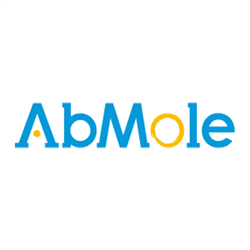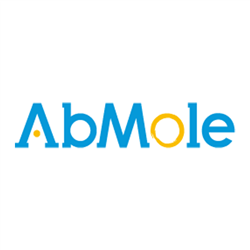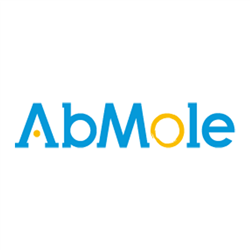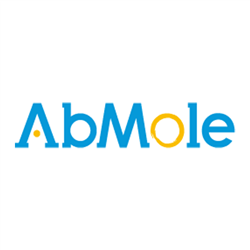Categorías
- Instrumentos
- Agitadores / Agit. Incubadores
- Orbitales
- Con Incubación
- Incubadores Gran Capacidad
- Lineales, Balanceo y 3D
- Incubadores Microplacas
- Para colocar en estufa
- Magnéticos
- Mezcladores /Roller /Rotatorios
- Agitadores de Paletas
- Jeio Tech Accesorios para Agitadores
- Benchmark Accesorios para Agitadores
- N-Biotek Accesorios para Agitadores
- Biosan Accesorios para Agitadores
- Labnet Int. Accesorios para Agitadores
- Vórtex
- Analisis Imagen, animales, plantas, geles
- Balanzas
- Baños Termostáticos
- Cabinas Flujo / Extraccion gases / PCR
- Centrifugas
- Detectores de Radioactividad
- Electroforesis
- Electroquímica
- Equipos Microplacas
- Espectrofotometros
- Experimentacion Animal
- Hornos de Hibridacion
- Homogeneizadores
- Estufas / Equipos calor, frio
- Luminómetros de Tubos
- Microbiologia
- Pipetas / Dispensadores
- Pipetas Labnet Int. Monocanales Automaticos
- Pipetas HTL Monocanales Automáticas
- Pipeta Accumax Mono y Multicanales
- Pipetas Labnet Int. Multicanales
- Pipetas HTL Multicanales
- Pipetas Volumen Fijo
- Pipetas Electrónicas
- Dispensadores
- Dispensadores de Botella
- Pipetas Biosan Monocanales
- Pipetas Biosan Multicanales
- PCR / Tiempo Real (qPCR)l / Cicladores
- QPCR, Sistemas automaticos
- Sonicadores / Ultrasonidos
- Ultracongeladores
- Bombas Jeringa / Vacio / Osmoticas
- Ultracentrífugas
- Micro Array label free
- Contadores de Células
- Contenedores Criogenicos
- Producción agua ultrapura
- Electrospinning
- Agitadores / Agit. Incubadores
- Reactivos
- Consumibles
- Catálogos PDF
Listado de productos por fabricante AbMole
β-N-methylamino-L-alanine hydrochloride
β-N-methylamino-L-alanine hydrochloride (BMAA hydrochloride) is a neurotoxin produced by cyanobacteria. L-BMAA hydrochloride helps to block the addition of heparan sulfate to glypican-1. It possesses unusual glutamate receptor binding properties.
β-N-methylamino-L-alanine hydrochloride
β-N-methylamino-L-alanine hydrochloride (BMAA hydrochloride) is a neurotoxin produced by cyanobacteria. L-BMAA hydrochloride helps to block the addition of heparan sulfate to glypican-1. It possesses unusual glutamate receptor binding properties.
β-N-methylamino-L-alanine hydrochloride
β-N-methylamino-L-alanine hydrochloride (BMAA hydrochloride) is a neurotoxin produced by cyanobacteria. L-BMAA hydrochloride helps to block the addition of heparan sulfate to glypican-1. It possesses unusual glutamate receptor binding properties.
β-Naphthoflavone
β-Naphthoflavone is an aryl hydrocarbon receptor (AhR) agonist, used as a positive control for the induction of AhR transcriptional activity. β-Naphthoflavone inhibits hydrogen peroxide-induced apoptosis.
β-Nicotinamide mononucleotide
β-nicotinamide mononucleotide (β-NM) is an intermediate in NAD+ biosynthesis produced from nicotinamide (NAM) and phosphoribosyl pyrophosphate (PRPP) by nicotinamide phosphoribosyl transferase enzyme with no toxicity.
β-Nicotinamide mononucleotide
β-nicotinamide mononucleotide (β-NM) is an intermediate in NAD+ biosynthesis produced from nicotinamide (NAM) and phosphoribosyl pyrophosphate (PRPP) by nicotinamide phosphoribosyl transferase enzyme with no toxicity.
β-Nicotinamide mononucleotide
β-nicotinamide mononucleotide (β-NM) is an intermediate in NAD+ biosynthesis produced from nicotinamide (NAM) and phosphoribosyl pyrophosphate (PRPP) by nicotinamide phosphoribosyl transferase enzyme with no toxicity.
β-Nicotinamide mononucleotide
β-nicotinamide mononucleotide (β-NM) is an intermediate in NAD+ biosynthesis produced from nicotinamide (NAM) and phosphoribosyl pyrophosphate (PRPP) by nicotinamide phosphoribosyl transferase enzyme with no toxicity.
β-Nicotinamide mononucleotide
β-nicotinamide mononucleotide (β-NM) is an intermediate in NAD+ biosynthesis produced from nicotinamide (NAM) and phosphoribosyl pyrophosphate (PRPP) by nicotinamide phosphoribosyl transferase enzyme with no toxicity.
β-Secretase Inhibitor IV
β-Secretase Inhibitor IV is a cellular permeability inhibitor that binds to the active site of BACE-1 and blocks its proteolytic activity (IC₅₀= 15 nM in human BACE-1).
β-Secretase Inhibitor IV
β-Secretase Inhibitor IV is a cellular permeability inhibitor that binds to the active site of BACE-1 and blocks its proteolytic activity (IC₅₀= 15 nM in human BACE-1).
β-Sitosterol
Replacing cholesterol in lipid nanoparticle (LNP) formulations with β-Sitosterol, a natural phytosterol, significantly improves mRNA delivery.












